NCERT Solutions for Class 7 Social Science - Water
| Table of contents |

|
| Answer the following questions. |

|
| Give reasons. |

|
| Tick the correct answer. |

|
| Match the following. |

|
Answer the following questions.
(i) What is precipitation?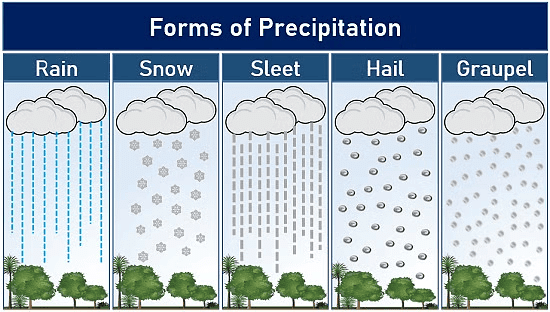
Ans: Precipitation is when rain, snow, hail, or other things fall from the sky to the ground. These droplets or ice crystals get too heavy, they can't stay up in the air, so they fall to the Earth's surface.
(ii) What is the water cycle?
Ans: The water cycle is the continuous movement of water on Earth through different processes. It starts with evaporation, where heat from the Sun turns water from rivers, lakes, and oceans into water vapor. Then, the vapor cools and forms clouds in a process called condensation. When the clouds become heavy, water falls back to the Earth as precipitation (rain, snow, sleet, or hail). This water then collects in rivers, lakes, and oceans, continuing the cycle. The water cycle is important for maintaining Earth's water supply and supporting life.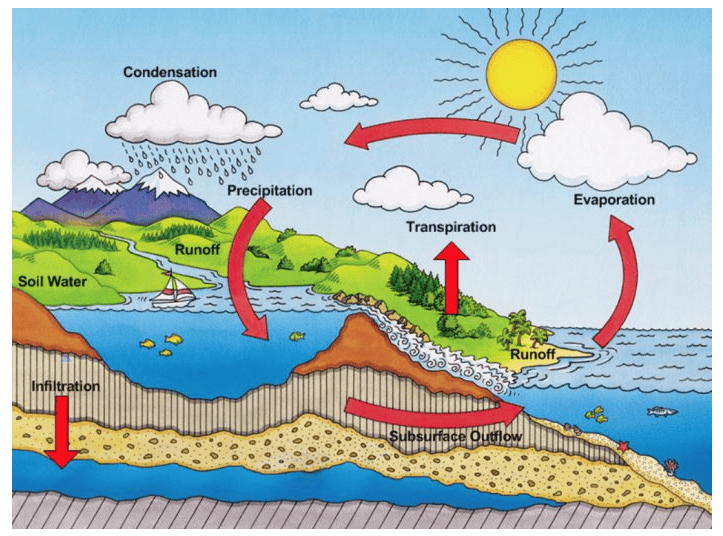 Water cycle
Water cycle
(iii) What are the factors affecting the height of the waves?
Ans: Factors affecting the height of the waves:
- Wind speed: Stronger winds create taller waves.
- Wind duration: The longer the wind blows, the larger the waves can become.
- Fetch: This is the distance over which the wind blows across the water. A longer fetch leads to bigger waves.
- Water depth: Waves can grow taller in shallower water as they approach the shore.
(iv) Which factors affect the movement of ocean water?
Ans: Factors affecting the movement of ocean water are:
- Wind: Surface winds drive ocean currents, influencing their speed and direction.
- Temperature: Warm water tends to rise, while cold water sinks, creating currents.
- Salinity: Variations in salt concentration affect water density, impacting movement.
- Earth's rotation: The Coriolis effect causes currents to curve, altering their paths.
- Gravitational pull: The moon and sun's gravity create tides, which also influence water movement.
(v) What are tides and how are they caused?
Ans: Tides are the regular rise and fall of ocean water that occurs twice a day. They are caused by the gravitational pull of the sun and the moon on the Earth's surface.
- During high tide, water covers much of the shore.
- During low tide, water recedes to its lowest level.
- When the sun and moon align, the tides are at their highest, known as spring tides.
- When the moon is in its first and last quarters, lower tides occur, called neap tides.
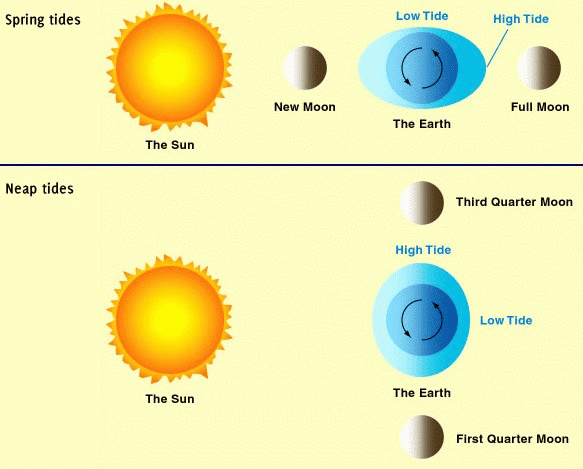 Spring Tides and Neap Tides
Spring Tides and Neap Tides
(vi) What are ocean currents?
Ans: Ocean currents are streams of water that flow continuously on the ocean's surface in specific directions. They can be classified into two main types:
- Warm currents: These originate near the equator and move towards the poles.
- Cold currents: These carry water from the poles to tropical regions.
Give reasons.
(i) Ocean water is salty.
Ans: Ocean water is salty because it contains large amounts of dissolved salts. Most of the salt is sodium chloride or the common table salt, which is primarily sodium chloride.
(ii) The quality of water is deteriorating.
Ans: The quality of water is deteriorating. This decline is due to pollution from various sources, including:
- Untreated waste
- Sewage
- Pesticides
- Toxic materials
These contaminants are being dumped into water bodies, leading to a significant decrease in water quality.
Tick the correct answer.
(i) The process by which water continually changes its form and circulates between oceans, atmosphere, and land
(a) Water cycle
(b) Tides
(c) Ocean currents
Ans: (a) Water cycle
(ii) Generally the warm ocean currents originate near
(a) Poles
(b) Equator
(c) None of these
Ans: (b) Equator
(iii) The rhythmic rise and fall of ocean water twice in a day is called
(a) Tide
(b) Ocean current
(c) Wave
Ans: (a) Tide
Match the following.
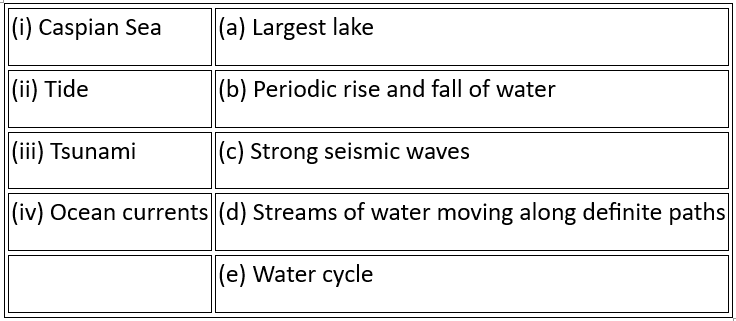
Ans: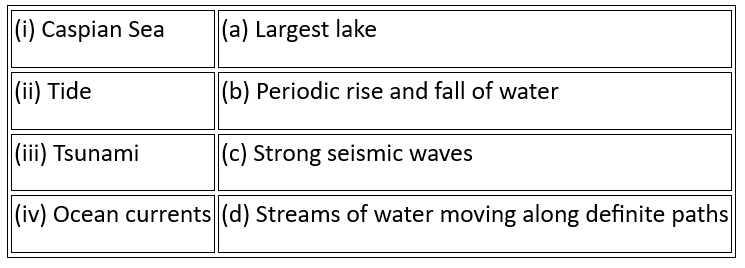
|
63 videos|371 docs|46 tests
|
FAQs on NCERT Solutions for Class 7 Social Science - Water
| 1. What are the main sources of water? |  |
| 2. Why is water considered a precious resource? |  |
| 3. What are the different methods of water conservation? |  |
| 4. How does water pollution affect the environment? |  |
| 5. What are some effective ways to purify water? |  |





















